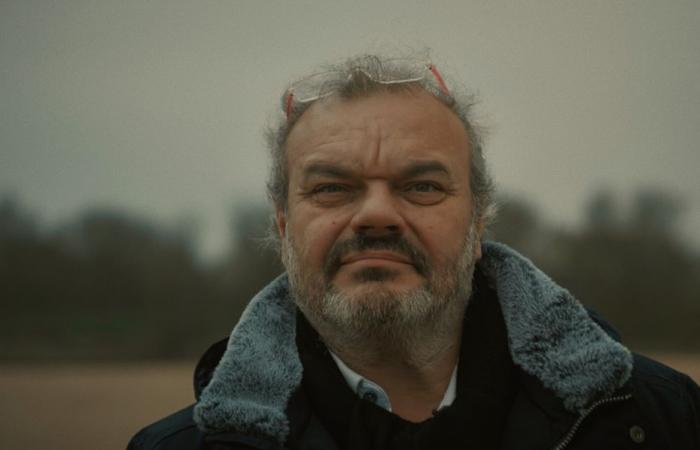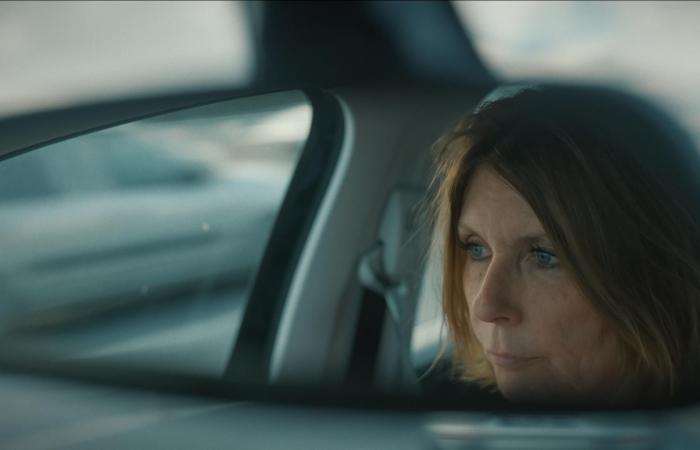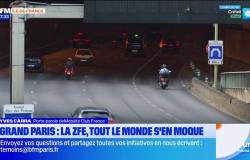In his documentary “Mon Enfant Chéri”, Nicolas Bourgouin gives a voice to parents confronted with their children’s drug addiction. Through intimate and moving testimonies, he explores their incomprehension, their guilt, but also their hope. This film, which focuses on parents rather than children, offers a unique look at an often taboo family ordeal.
Company
From daily life to major issues, discover the subjects that make up local society, such as justice, education, health and family.
France Télévisions uses your email address to send you the “Society” newsletter. You can unsubscribe at any time via the link at the bottom of this newsletter. Our privacy policy
Roselyne, Isabelle and Jocelyn do not know each other. Their words, however, respond to each other to form the same story when they confide in each other about the journey of their respective sons. A child, their child, who one day encountered drugs. Some didn’t come out of it, others did. Like Grégoire, the son of Dominique and Patrick who went through a long episode of drug addiction and for several years became a stranger in the eyes of his parents.
Nicolas Bourgouin, director of “Mon Enfant Chéri” chose to make a film around an intimate word that he delicately collects. He frames the faces at the right distance for the conversation, using rarely rare sequences of daily life which break with the enormity of what is being told to us.
“Mon Enfant Chéri” does not belong to the genre of documentaries fond of reconstructions of shooting scenes, or other drug-addicted behavior with a dramatic musical background. No expert words either to discuss the subject of drug addiction and to bring the film closer to a journalistic investigation. Not even an interview with the children in question. What makes Nicolas Bourgouin’s approach so powerful and interesting is the opposite of all that. Its subject is the parent, what he or she says, understands, hopes.
Parents of drug addicted children testify in the documentary “Mon Enfant Chéri” by Nicolas Bourgouin
•
© 416 Prod
He tells me he does this to escape the harshness of life.
Mothers, fathers who recount, between emotion and resignation, the pangs of questions left unanswered for a long time, or which always remain so.
First of all, there is incomprehension. Why him? “Before he was 15, he was an agile, lively child, interested in many things, he had a lot of empathy.” remembers Isabelle, who works in real estate in Paris. “He always helped others, He was that kind of kid.”.
She talks about it in the imperfect tense, her son is 19 years old today, he has been a drug addict for 4 years. She thinks he was bullied in middle school. An explanation to cling to, for lack of any other known reason.
“He tells me he does this to escape the harshness of life.” remembers Roselyne. “But should we look for discomfort? All of humanity is in distress.”. Understand: not everyone uses drugs.
Roselyne’s son, 27 years old today, was seen by his mother as a teenager as “hypersensitive, not very attracted to school, but creative”. At the age of 15, seized by an acute delirium, he disturbed public order. He is apprehended and hospitalized. “I then get to know a completely unknown part of him.”
Jocelyn, who lives in Anjou on the banks of the Loire, describes her son Adam as “jovial, good-natured, lively, carefree” until his unfounded accusation by a parent of a student at the college where he attends, which completely destabilizes him. Adam attempted suicide at 13 and began using drugs.
What did I do, not do, wasn’t I strict enough?
DominiqueMother of Gregory
For Grégoire, the son of Dominique and Patrick, his encounter with drugs happened after his baccalaureate, at 19 years old. A rather withdrawn boy, they see him change, go out, become extroverted, then it’s the descent into hell in their own words.
Dominique and her husband Patrick, parents of Grégoire
•
© Nicolas Bourgouin – 416 Prod
Hell for children sick with drugs, hell for parents subjected to high doses of guilt. They go over everything like Dominique: “What did I do, not do, wasn’t I strict enough?”.
“We are afraid to tell those around us” admits Roselyne, “we are afraid of judgment, of being told that we did not take enough or good care of him, that we were failing.”
Guilt of course if we separated from the other parent. Jocelyn, whose divorce didn’t go well, admits he was pretty hands-off when Adam was at his house on the weekends, “we say to ourselves that we have done him enough harm as it is”.
Father of Adam, Jocelyn lives in Anjou
•
© Nicolas Bourgouin – 416 Prod
If we are still in a relationship, drug addiction puts it to the test: Patrick, husband of Dominique and father of Grégoire, thought that things would return to normal. Dominique confides that she did not feel listened to at the time, thought that her husband should have intervened more, that he as a father had keys that she did not have. Patrick recognizes this: “I was in difficulty, in a sort of paralysis, a non-action”.
This feeling of helplessness in the face of drug addiction makes parents feel disqualified. Because, as Isabelle confides, “everything goes” : cannabis, opiates, crack, cocaine, hallucinogenic mushrooms, amphetamines, alcohol. Roselyne realizes this: the drug has introduced two poisons into the relationship with her son, lies and denial. “These are children who disappear” she concludes.
If drug addiction is an illness, its therapeutic management leaves much to be desired. Adam and Grégoire benefited from the help of places of life which welcomed them, including work and accommodation for several months. For Isabelle, the situation is harsher. “The addiction service did not want to take him at first, on the grounds that he “only” smoked 5 joints a day at 15 years old. Follow-up by a psychiatrist remains possible, but if the young person does not want to, he does not go..”
duration of video: 00h01mn40s
Documentary “My darling child” by Nicolas Bourgouin – extract Deficient care
•
©LCP/AN – 416 Productions – France 3 Pays de la Loire
There is nevertheless a place for hope, Nicolas Bourgouin tells us, letting us discover at the end of his film the current situation of Grégoire and Adam, today free of drugs and integrated. Two magnificent sequences which show us that the parent-child relationship in which drugs were interposed can be repaired. Better still, it can grow and become more beautiful.
Roselyne wrote a book, “The heartbeat of the hummingbird, the fight of a mother facing her son’s addiction” (Les éditions du Rocher) to rediscover the feeling of action and alert people to the lack of understanding. in charge of drug addiction among young people. Isabelle, overwhelmed, but somehow still standing, hopes against all odds: “C“maybe he can be caught up, after all, he’s only 19”.
Journalist Roselyne Febvre published “The heartbeat of the hummingbird, a mother’s fight against her son’s addiction”, published by Éditions du Rocher.
•
© Nicolas Bourgouin – 416 Prod
“My darling child” is broadcast as part of an evening on addictions, with two perspectives, one on drugs and the other “Absent subscribers” on smartphones.
This documentary by Anne-Sophie Levy Chambon therefore deals with a more recent addiction. Because there was a time when we wandered around with our noses in the air and if we got lost, we always found a good soul to put us back on the right path. Today, since the advent of smartphones, all attention is mechanically focused on these little luminous rectangles which stick to us and isolate us from the world around us.
Screen addiction has become a major problem. According to the latest studies, almost 100% of people with a cell phone believe they spend too much time on it. And during this time, the French have never had the feeling of running out of time… Look for the mistake!
Faced with this universal phenomenon of the hijacking of minds, rebellious souls of all generations have decided not to give in to the siren song of permanent connection.
These are the absent subscribers. With Amélie Nothomb, Sylvain Tesson, Alain Finkielkraut, Miguel Benasayag, William Lowenstein, Laurent Karila, Yves Marry and free and happy absent subscribers.
►These two documentaries can be found in full on the france.tv platform in our collection France in real.







